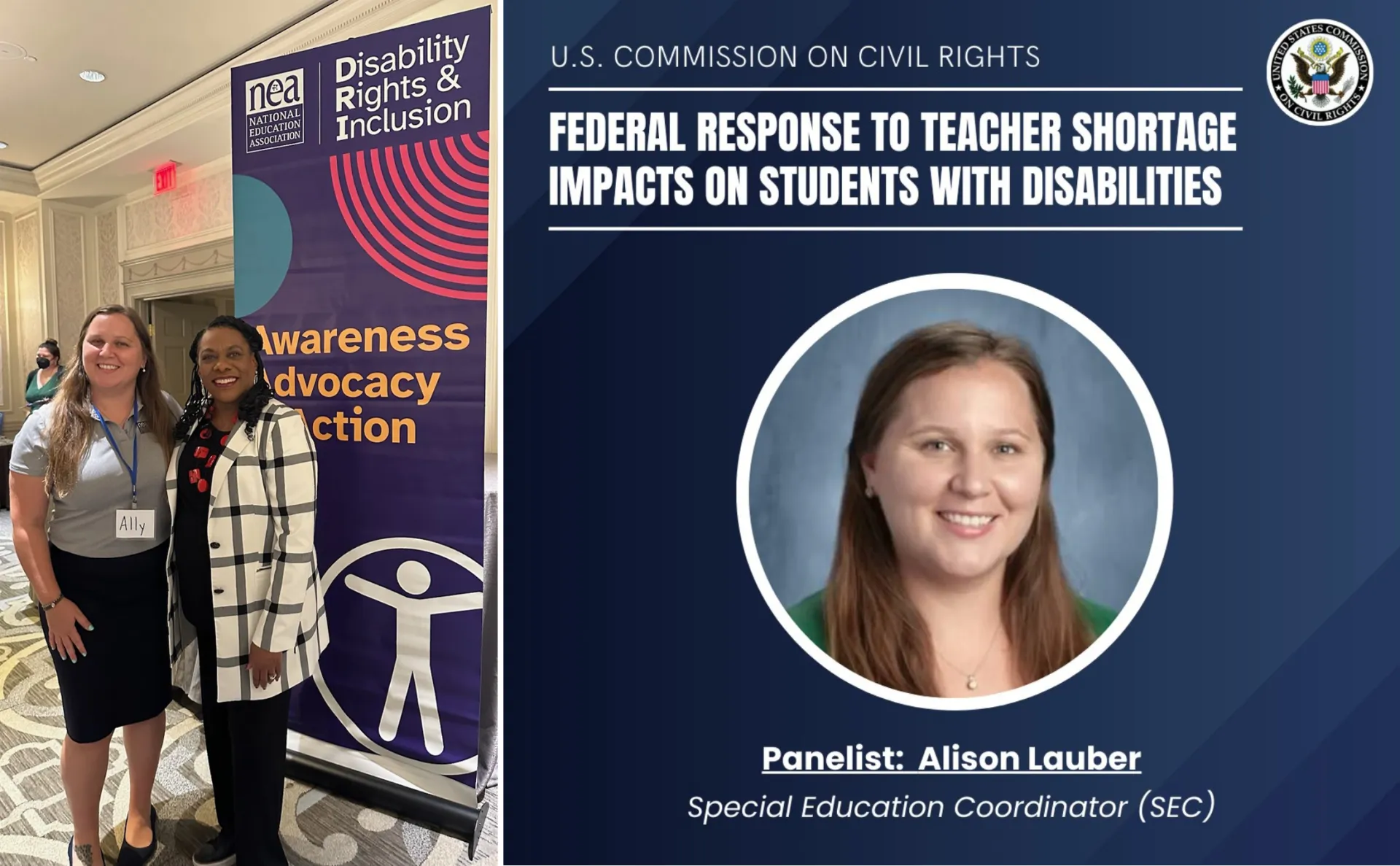When Alison Lauber first saw the call for applicants to the NEA’s Disability Rights Resource Cadre, she had never heard of the group before. But something about the opportunity stuck with her.
“I just took it upon myself to put my name out there,” said Lauber. “I didn’t know where it would lead, but I knew the work mattered.”
Now in her second year on the Cadre, Lauber represents both Delaware and NEA’s Zone 1. She joins colleagues from across the country to develop resources, provide training, and support national advocacy around special education and disability rights.
The Cadre was formed in 2000 to help the National Education Association address the growing need for accessible learning and equitable treatment for educators and students with disabilities. Today, it includes more than 30 members from at least 25 states, including members of the Federal Education Association. Together, they serve as a bridge between NEA and its affiliates, helping elevate the voices of classroom educators into national conversations.
“We’re a conduit between what’s happening in our states and what NEA can take forward,” Lauber explained. “That might mean resources, training modules, professional learning. But it also means collecting feedback and trying to get our voice in the room at the federal level.”
The Cadre’s work has taken on new urgency in recent years as public education faces staffing shortages, student service gaps, and growing national division.
“It’s not just Delaware. It’s everywhere,” Lauber said. “Staff shortages, burnout, unmet needs for students with disabilities. We’re all feeling the same pressures. That’s why the Cadre’s role is so important. We help identify the patterns, amplify them, and push for policy change where it’s needed most.”
The Cadre meets monthly and holds an annual convening in July to kick off the program year. Members frequently present at NEA leadership conferences, contribute to professional development resources, and in some cases, are deployed to states to assist with training or advocacy efforts.
“We don’t just want Google Forms. We want to actually hear from people in the room,” she said. “The goal is to build that foundational understanding of IDEA and disability inclusion, and do it through real conversations.”
As an educator in Delaware, Lauber said her background shapes the perspective she brings to national discussions. But the commonalities across state lines are striking.
“When I bring something up in the Cadre, whether it’s about certification or staffing or services, we hear the same things from Texas, from Montana, from California,” she said. “It helps us build a shared knowledge base so the resources we develop really reflect what’s happening everywhere.”
“I didn’t know about the Cadre until someone forwarded the info,” she said. “This kind of work shouldn’t be something people stumble into.”
“Participation matters. Even if it’s not a national committee, even if it’s just showing up to a local event or responding to a listening session invite, it makes a difference,” she said. “We might not always see it right away, but the impact is real. Our work creates ripples that transform schools, communities, and lives.”
DSEA will continue highlighting Alison’s work throughout the year.
